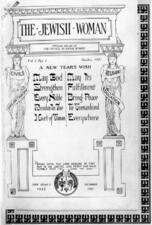Religion
Iggeret Ha-Kodesh
The Iggeret ha-Kodesh is a Kabbalistic work with contested authorship, written in the second half of the twelfth century. The work is a kabbalistic interpretation of sexual relations and its sacred spirituality between a married couple.
Imma Shalom
Inés of Herrera
Inés of Herrera was a twelve-year-old prophetess whose message of salvation appealed to the conversos of Castile at the end of the fifteenth century. The Inquisition was anxious to quickly deal with this threat, trying many girls and women as heretics as of 1500; their confessions reveal details about this movement.
Infertile Wife in Rabbinic Judaism
Only men are legally obligated to procreate, but there is disagreement over whether that obligation compels a man to divorce his wife after ten childless years. The initial infertility of the matriarchs reinforces the efficacy of prayer by demonstrating that the individual matriarchs’ suffering and supplications are what provoked a divine response.
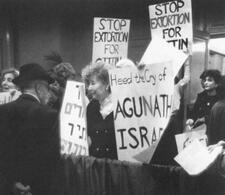
International Coalition for Agunah Rights (ICAR)
International Coalition for Agunah Rights (ICAR) was created to solve the problem of women whose husbands refuse to grant them Jewish divorces, through a combination of education and activism. Although some of the member organizations remain active in North America, ICAR itself has become a primarily Israel-focused coalition.
Iraqi Jewish Women
Ishah Hashuvah (Woman of Distinction)
The Hebrew term ishah hashuvah appears in seven sugyot in the Babylonian Talmud, though its meaning is not clear. It seems to refer to a woman of some wealth or importance.
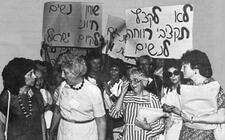
Israel Women's Network
The Israel Women’s Network (IWN) was founded in 1984 and is responsible for many of the feminist breakthroughs in Israel. Though the success of IWN led to an undesirable degree of politicization, it remains an active agent in Israeli feminism.
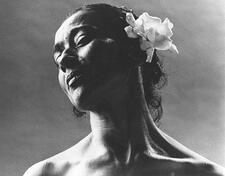
Israeli Folk Dance Pioneers in North America
Dance has been an integral element of the Jewish community since biblical times. An intense desire to share the joy of dance, coupled with a strong identification with both Israel and their Jewish roots, spurred a group of influential women to create a flourishing movement of Israeli folk dance in North America. Today, Israeli folk dance enjoys a wider popularity than ever.
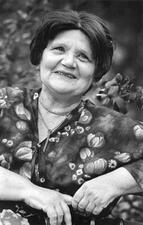
Israeli Women's Writing in Hebrew: 1948-2004
Women writers faced many obstacles in the early years of modern Hebrew, but by the end of the twentieth century they had overcome marginalization to become a central part of the country’s literature. The achievements of women’s writing in Hebrew rank among the unquestionable triumphs of Israeli feminism.

Early Modern Italy
A study of the role of Jewish women in household formation, the household, and household dissolution, as well as their engagement in Jewish culture in early modern Italy, raises the question of how much of Jewish practice reflected the context of the surrounding society and how much engaged options in traditional Jewish practices, which were selected to meet their own needs. Despite the wealth of information about some well- known women and reports of the activities of many unnamed women, Jewish women, like Christian women, still functioned in the context of women and the period does not represent a Renaissance for women.
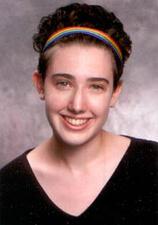
Shulamit Izen
Dore Jacobs
Dore Jacobs developed her own pedagogy, which viewed physical education as a holistic project, out of which came her own unique method of gymnastics. In 1923 she founded her School for Physical Education and Rhythmic Development; she was also a founding member of the German socialist organization called the Bund-Gemeinschaft für Sozialistisches Leben.

Jill Jacobs
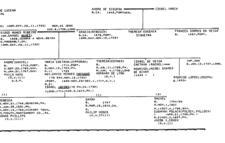
Zipporah Nunes Machado Jacobs
Zipporah Nunes was born a Conversa in Portugal circa 1710. After escaping to London to avoid being re-examined by the Inquisition, her family began practicing Judaism openly; later she became one of the first Jews to settle in the newly formed colony of Georgia in 1733.
Janie Jacobson
Combining her Jewish background with her skill and penchant for writing, Janie Jacobson succeeded as a biblical playwright in the early twentieth century. The children’s plays she authored were performed nationally. In addition to being an accomplished writer, she was a talented musician and involved in Jewish social activism.
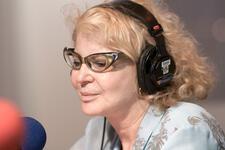
Paula Jacques
Paula Jacques (b. 1949) is a French radio hostess and a novelist. Her works, which feature memorable female protagonists, most often portray the French-speaking Jewish community of Egypt prior to their expulsion at the time of the Suez crisis.
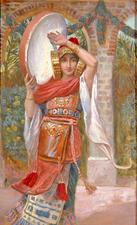
Jephthah's Daughter: Midrash and Aggadah
Jephthah’s daughter is portrayed in midrash as a wise and practical woman, well-versed in halakhah and the Torah. The rabbis place the blame for her murder on her father and the High Priest Phinehas.
The Jewish Family in Early Twentieth-Century United States
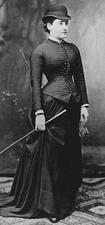
Jewish Feminism in Post-Holocaust Germany
Jewish feminism in Germany today is an expression of a wide-reaching renewal of Judaism occurring in many European countries since the early 1990s. German Jewish feminists built on the historical tradition of the Jewish women’s movement in pre-Holocaust Germany and has since taken many paths.

Jewish Feminism in the United States
Challenging all varieties of American Judaism, feminism has been a powerful force for popular Jewish religious revival. The accomplishments of Jewish feminists have transformed American Jewish life, even as the ultimate goal of gender equity and shared power has yet to be fully realized.
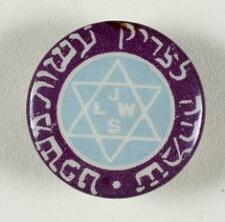
Jewish League for Woman Suffrage
The Jewish League for Woman Suffrage (JLWS) was the only Jewish women’s organization in England—and the world—devoted exclusively to obtaining both national and Jewish suffrage for women.
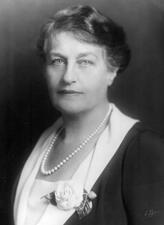
Jewish Museums in the United States
American Jewish women have played an outsized role in the foundation of Jewish museums all over the country. Barred from traditional spaces of power in the early twentieth century, many women—adjacent to power as Rebbetzins, philanthropists, and secretaries of libraries and other Jewish organizations—leveraged their connections to found new kinds of cultural institutions: museums.
Jewish Orthodox Feminist Alliance
JOFA, the Jewish Orthodox Feminist Alliance, was the first Orthodox feminist organization in the United States. Since 1997, it has striven to expand Jewish women's religious and spiritual roles within the parameters of halakhah and to address specific halakhic issues related to women in marriage and divorce. JOFA provides practical suggestions for increasing women's participation in religious rituals and halakhic-theoretical views on modern Jewish observance.
